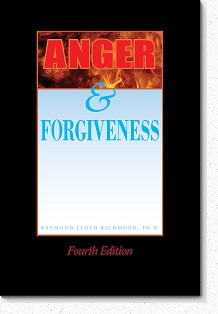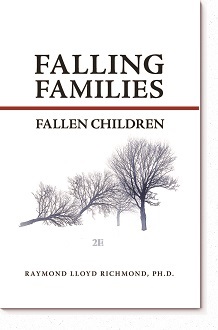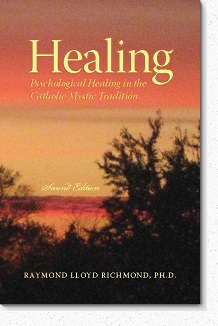|
|
|

I was
taught that anger is a bad thing. I’ve had an abusive childhood but
it is hard to feel any anger about it because I feel guilty and afraid about
offending God or blaming my parents.
 nger is always a reaction to some
sort of hurt or insult. But when you look at this reaction more closely,
you will see that anger does not have to be the only reaction to
hurt. nger is always a reaction to some
sort of hurt or insult. But when you look at this reaction more closely,
you will see that anger does not have to be the only reaction to
hurt.
Physiological
Arousal
The most immediate
and primary response to hurt or insult is a physiological arousal of the
sympathetic nervous system. Your heart rate jumps. Your blood pressure surges.
These things, however, are just immediate self-defensive reactions that prepare
us to take some sort of action to respond to the threat.
Definition of
Anger
Now, to be
technically precise here, anger does not refer to the feeling of
physiological arousal itself;
anger is
a particular response to that arousal that is grounded in hostility and
hatred. In essence, anger is a wish to
hurt someone because someone has hurt you. Anger does not even have to be
experienced as the strong emotion of rage; it can just as well be a
thought or a wish to hurt someone. In this sense, then, anger
is a “bad” thing because it is an offense against love, for
love is a matter of willing the good of others, not a matter of wishing
them harm.
|
Note that anger
and resentment have different meanings. Anger refers to an attempt to
force a disliked situation to change or stop. Thus when you are angry at others you
want to hurt them bad enough to stop them from doing whatever they are doing that
you dislike. Resentment refers to an experience of dislike for someone (or
something) mixed with blame for the person or thing responsible for your
dislike. |
|
Experiencing
Anger in the Healing Process
When you are
told to acknowledge your anger within the context of psychotherapy or spiritual
healing, however, you are not being told to do something that is morally
wrong. Nor are you being encouraged to “get angry,” such as by
yelling, cursing, throwing things, breaking things, or hitting someone. Instead,
you are being told to recognize something that is already within you,
so that you can stop deceiving yourself about your own
reality.
So let’s
see what that “something” might be.
Unconscious
Anger
The trials of
childhood, whether as severe as outright
child
abuse or less severe as mistreatment in dysfunctional families, provoke
feelings of hurt and insult in the child, and almost inevitably that hurt leads
to hate and a desire for revenge. In fact,
even many ordinary, non-abusive frustrations of childhood will provoke feelings
of hurt and secret fantasies of revenge. But because children are not usually
taught to express hostile thoughts and feelings by speaking about them—and
because they aren’t taught the psychological meaning of
anger, and
because they aren’t taught the real meaning of
mercy and
forgiveness
and reparation—children quickly learn, through
fear and guilt, to
hide their true feelings from their
parents.
The ultimate
psychological problem, however, is that these unexpressed thoughts and
feelings—the “bad” anger—get pushed into the
unconscious where
they continue to grow in darkness, like mold on the walls. It may be hidden
from conscious sight, and it may be hidden from public view. But it can’t
be hidden from God.
That is, unconscious
anger, no matter how much you try to deny it, will continue to stain all
your interpersonal relationships. With this anger festering inside of you,
it becomes almost impossible to give true love to
anyone, including God, even in Confession. Right
now, when difficult things happen to you, you
fall kersplash! right into the swamp of childhood anger.
The Healing
Process
The whole point
of spiritual healing is to learn that there are very specific environmental
triggers for your thoughts and feelings. In the healing process, you first
learn to recognize the triggers of anger; then you learn to recognize the
emotional “bridge” that goes back to childhood wounds; then you
learn to do something constructive about the triggers, rather than succumb
to hostility.
The Triggers
of Anger
Learn to look
for the actual events (notice the plural) that have been bothering you recently.
Take each one separately. What are all the
feelings about that event? Frustration? Helplessness?
Abandonment? Betrayal? Fear? (Keep in mind that anger is
the final, hostile reaction to all the other feelings.)
When you have
these feelings all separated out, then you will have an idea of what
is really happening to you, apart from the anger.
The Emotional
Bridge
Next, follow
each example of hurt back into its roots in the past to all those times and
circumstances when you felt the same way. Carefully
scrutinize your childhood and examine your memories
of painful events to discover what you were really feeling then.
Remember, your
impulsive reactions to present injuries are the unconscious expression
of the original emotions and fantasies you experienced, but suppressed,
in childhood.
|
After scrutinizing
their childhood, some persons will say that they feel sad or lonely but do
not feel any anger at their parents. In these cases, the anger can be recognized
not through the emotion of rage but through specific behaviors of
hate.[1]
• |
Hatred for
authority can be expressed through criminal activity; political
protest and
terrorism; marijuana use,
pornography [2];
abortion; shoplifting; speeding; being late for
appointments; living in clutter or filth; etc. |
• |
Hatred for
the self can be expressed through the self-sabotage of one’s
potential such as by chronic procrastination; the inability to support oneself
by working; overdependence on others; substance
abuse; obesity; codependence (such as marrying
an alcoholic); emotional disability; etc. |
But whether the
end result be hatred for authority or hatred for yourself, the underlying
cause is anger at your parents, because of their failures in
love. |
|
The
Remedy
Having understood
the previous two steps, now deal with each event separately, according to
the thoughts and emotions specific to that event. Do something constructive
and creative about each problem individually. Choose something different
from our pagan culture’s Satanic Rule: “Do to others what they
do to you.” Choose something based in true Christian values:
|
Finally, all
of you, be of one mind, sympathetic, loving toward one another,
compassionate,
humble. Do not return evil for
evil, or insult for insult; but, on the contrary,
a blessing. . . . |
|
|
— 1 Peter 3:8-9a |
|
Remember, it’s
your choice. You can do something charitable, or you can get angry about
everything and stew in it. Up till now you have been stewing in it, because
everything in your life is all caught up in a big snarl of childhood hurt,
and that’s why everything seems so oppressive and foul underneath the
surface of a nice, devout demeanor.
Summary
So, if you go
through this healing process, you will learn to free your hidden anger from
its dark, silent prison. Having thus set it free, and having thus cleansed
yourself of its stains, you will also be free of something else. You will
be free of feeling
victimized
and free of secretly blaming your parents, because
as long as you keep your anger hidden, you remain emotionally disabled, and
as long as you remain emotionally disabled, you are throwing your disability
in your parents’ faces to accuse them of their faults.
Once you acknowledge
the core of your anger, and understand it, and stop unconsciously wishing
harm on your parents, you can
forgive
your parents. Then you will be healed, and then
you can turn to God with true love in your
heart.

Notes.
1. The spiritually negative emotion of hate
does not necessarily mean a passionate loathing; it can just as well be a
quiet, secret desire for harm to come upon someone or something. Hate can
be a subtle thing, therefore, and it often is experienced more unconsciously
than consciously. Consequently, it will often be very easy to deny that you
feel any hatred for anyone at all.
Note also that hatred and anger are
theologically synonymous. Christ Himself taught the crowds, “But I say
to you, whoever is angry with his brother will be liable to judgment”
(Matthew 5:22). And Saint John the Evangelist reflected this sentiment when
he said, in one of his letters, “Everyone who hates his brother is a
murderer” (1 John 3:15). The theological implication of these texts,
therefore, is that any desire for harm to come to another person—whether
through active loathing or through passive resentment—is, in its spiritual
essence, an evil desire to remove the fullness of life (with its possibility
of love and forgiveness) from that person.
2. Pornography, in its own way, derives from the
urge to defile another person. On the surface, it may seem that pornography
is simply about erotic pleasure. But when the human body is made into a
biological toy, it is stripped of all human dignity, and this defilement
is an act of hatred and aggression. The hostility may be unconscious or it
may be openly violent, but, either way, it has its basis in resentment. And
to whom is the resentment directed? Well, as in all things psychological,
the resentment goes back to the parents. Deep down, under all the apparent
excitement, and despite the attraction to what is seen, lurks the
dark urge to hurt and insult—to “get back at”—what is
behind the scene: a mother who devoured, rejected, or abandoned, rather
than nurtured, or a father who failed to teach, guide, and protect.
Related pages:
Scruples
Sending yourself to hell to prove that someone
has hurt you
Unconscious desire
Blind to your own anger
What is “anger without sin”?
BOOKS
Anger &
Forgiveness
Fourth Edition


 A book that
provides much needed clarity about two topics often misunderstood in contemporary
culture. A book that
provides much needed clarity about two topics often misunderstood in contemporary
culture.
Most of us carry more anger in our hearts than we are capable of admitting even to
ourselves, and as a result we often feel stuck in a lack of spiritual progress. This
book, written in a clear, non-theological language, explains the deep psychology of
anger and forgiveness and shows how to turn the emotional wounds of daily life into
spiritual growth.
More Information
Falling Families, Fallen Children
Second Edition


 Do our children see a mother and a father both living in contemplative love for God
with a constant awareness of His presence and engaged in an all-out battle with the
evil of the world?
Do our children see a mother and a father both living in contemplative love for God
with a constant awareness of His presence and engaged in an all-out battle with the
evil of the world?
More often than not our children don’t see living faith. They don’t
see protection from evil. They don’t see genuine, fruitful devotion. They don’t see
genuine love for God. Instead, they see our external acts of devotion as meaningless
because they see all the other things we do that contradict the true faith. Thus we lose
credibility—and when parents lose credibility, children become cynical and angry and
turn to the social world around them for identity and acceptance. They are children
who have more concern for social approval than for loving God. They are fallen children.
Let’s bring them back.
More Information
Healing
Psychological Healing in the Catholic Mystic Tradition

 A treasure of a resource for psychological
and spiritual healing. Information gathered from my websites is now available at your fingertips
in book form with a comprehensive index. A treasure of a resource for psychological
and spiritual healing. Information gathered from my websites is now available at your fingertips
in book form with a comprehensive index.
Psychological defenses help to protect us from
emotional injury, but if you cling to the defense mechanisms that were created in your
childhood and carry them on into adulthood—as most everyone does unconsciously—your quest
for spiritual healing will be thwarted by overwhelming resentments and conflicts.
Still, God has been trying to show you that there is more to life than resentment and
conflict, something so beautiful and desirable that only one thing can resist its pull:
hate.
So now, and in every moment until you die, you will have a profound choice between your
enslavement to old defenses and the beauty of God. That decision has to come from you.
You will go where you desire.
More information
|






